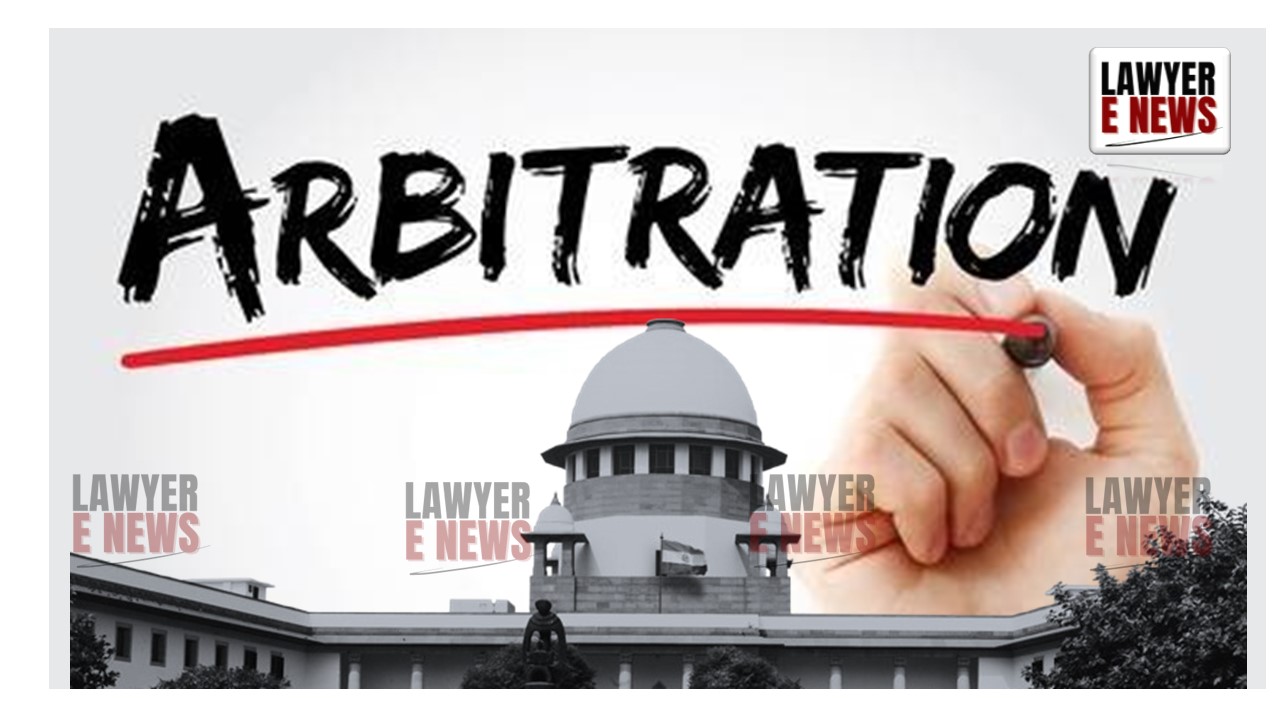-
by Admin
15 February 2026 5:35 AM



Supreme Court of India dismissed an appeal by the Central Warehousing Corporation (CWC), reaffirming the Arbitration and Conciliation Act, 1996 as the governing statute for contractual disputes, even where the Public Premises (Eviction of Unauthorised Occupants) Act, 1971 might apply to the premises involved. The Court upheld the High Court's decision to appoint an arbitrator under Section 11 of the Arbitration Act, allowing the arbitral process to address disputes related to a lease agreement between CWC and M/s Sidhartha Tiles & Sanitary Pvt. Ltd..
The decision clarifies that arbitration clauses in valid contracts continue to govern commercial disputes, even if a public premises is involved, with the Public Premises Act applying only to eviction and possession matters, not overriding or interfering with arbitration processes.
"Arbitration Clause Governs Disputes of Lease Renewal and Storage Charges": Supreme Court Dismisses Appeal
The case arose from a dispute between CWC, a statutory body under the Warehousing Corporations Act, 1962, and M/s Sidhartha Tiles regarding the lease of a warehouse in Panchkula. The parties entered into a lease agreement in 2012, which contained an arbitration clause to resolve disputes. The dispute arose over storage charges and the right to renew the lease when it expired in September 2015. CWC invoked the Public Premises Act after the respondent failed to vacate the premises post-expiry, seeking to evict the tenant.
However, M/s Sidhartha Tiles invoked the arbitration clause and moved to the High Court under Section 11 of the Arbitration Act for the appointment of an arbitrator to resolve the dispute. The High Court agreed, appointing an arbitrator to adjudicate issues regarding the lease and storage charges. CWC challenged the appointment, contending that the Public Premises Act should take precedence.
Supreme Court: "Public Premises Act Does Not Override Arbitration Act"
Addressing CWC's argument that the Public Premises Act overrides the Arbitration Act, the Supreme Court ruled decisively against the appellant. The Court clarified that the Public Premises Act primarily deals with eviction and unauthorized occupation, while the dispute in question arose from the lease agreement and related to financial and contractual terms that fall squarely within the scope of the Arbitration Act.
"The Public Premises Act neither bars nor overlaps with the scope and ambit of proceedings under the Arbitration and Conciliation Act. The dispute arose during the valid subsistence of the lease, and its resolution depends on the terms of the agreement."
— [Para 13]
Jurisdiction of High Court Under Section 11 of Arbitration Act Confirmed
The Court further upheld the High Court's jurisdiction in appointing an arbitrator under Section 11 of the Arbitration Act, confirming that the only threshold requirement is the existence of a valid arbitration agreement, which both parties had entered into.
"The referral court’s role under Section 11 is limited to ascertaining the prima facie existence of an arbitration agreement. The revision of storage charges and the right of renewal are disputes that arise under the agreement and are, therefore, within the scope of arbitration."
— [Para 14]
Citing its own decision in SBI General Insurance Co. Ltd. vs. Krish Spinning (2024 SCC OnLine SC 1754), the Court reiterated that the referral court's examination is limited to confirming the existence of an arbitration agreement, leaving the merits of the dispute to the arbitrator.
Appeal Dismissed with Costs and Arbitral Proceedings to Resume
Finding no merit in CWC's appeal, the Supreme Court dismissed it and imposed costs of Rs. 50,000 on the appellant for pursuing "unnecessary litigation." The Court directed that the arbitration proceedings, which had been stayed during the pendency of the appeal, resume immediately, with instructions for the arbitral tribunal to expedite its award.
"The arbitration proceedings stayed due to this appeal must now resume, and the arbitral tribunal is directed to deliver the award as expeditiously as possible."
— [Para 16]
Public Premises Act does not override the Arbitration Act, and disputes related to financial or contractual obligations can be resolved through arbitration even when public premises are involved.
The scope of a Section 11 referral court is limited to confirming the existence of an arbitration agreement, with the merits of the dispute left for the arbitral tribunal.
The Public Premises Act deals primarily with eviction and unauthorized occupation, whereas arbitration deals with contractual disputes.
The Supreme Court imposed costs on the appellant for unnecessarily prolonging the legal process.
Date of Decision: October 21, 2024
Central Warehousing Corporation & Anr. vs. M/s Sidhartha Tiles & Sanitary Pvt. Ltd.
